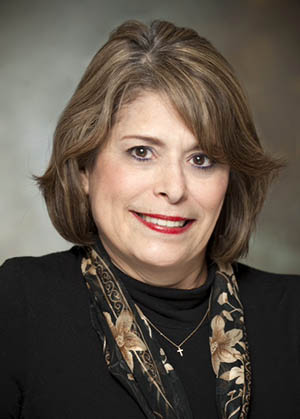 Christella Whitcher was working as an emergency room nurse at Houston Methodist Hospital
in 1985 when she learned she had breast cancer. In 2009, she had a relapse.
Christella Whitcher was working as an emergency room nurse at Houston Methodist Hospital
in 1985 when she learned she had breast cancer. In 2009, she had a relapse.While some may have despaired, Whitcher used the experience to grow stronger.
“You come face to face with your mortality and you get to this place where you must challenge yourself,” she said. “Continuing my education was how I chose to channel my spiritual and internal strength.”
With a clean bill of health, Whitcher returned to school in 2010 to pursue a post-graduate certificate at the University of Houston College of Education. Whitcher had a bachelor’s degree in nursing and a master’s in business administration but wanted to improve her teaching skills. She was working as a nurse educator at the University of Texas MD Anderson Cancer Center prepping nurses joining the team and guiding them as they became oncology specialists.
“With every role I’ve had in nursing, I’ve been really involved in trying to make things better,” Whitcher said. “When a nurse is in school, they learn with mannequins. There are many skills that they only learn at their workplace. I help by supporting their classroom and clinical orientation. The role of nursing requires time and maximum supervision since patient lives are at stake.”
The College of Education certificate program, called Integrating Innovative Technologies in Health Science Education, helps healthcare professionals become better educators. Courses cover topics such as curriculum development, instructional design and digital media.
While earning the certificate, Whitcher saw how synthesizing her medical knowledge with the theories behind instructional design proved powerful as she was training nurses.
Not done learning, she decided to pursue an Education Doctorate in professional leadership with an emphasis in health science education from the College of Education. Sara McNeil, associate professor and coordinator of the college’s instructional technology program, encouraged her to apply.
“Chris is a perfect illustration of a lifelong learner – someone who has a deep thirst for knowledge and a strong desire to improve her professional practice,” McNeil said. “Chris is a leader in health science education, and she is highly motivated to promote evidence-based healthcare, better teaching and learning strategies, and workplace learning.
Whitcher began working as a nurse in 1980, starting at Jeff Davis Hospital in the labor and delivery ward. She explored many roles in a variety of settings including working as a school nurse in the Spring Branch school district and as a facilitator for the Drug Free Schools and Communities program. She started at MD Anderson in 2003 and for the last eight years has worked in the role of nurse educator, providing professional staff development in the ambulatory and acute care setting.
In the doctoral program, Whitcher said, the courses translated well into her job – such as the lesson on cognitive load theory, which included strategies to help people remember what they learn.
“Every nurse is an educator because of the patient teaching we do, but in my role, I needed to understand how people learn in order to design education differently,” said Whitcher, who earned her Ed.D. in 2015. “Helping nurses develop competency in their practice ultimately supports patient safety and quality care.”
Whitcher has won numerous awards, including the Nursing Excellence Gold Medal as a Clinical Educator by the Good Samaritan Foundation of Texas in 2014. She was recognized in 2015 by the Texas Nurses Association for excellent nursing performance. She has presented nationally and internationally, in Brazil and China. Last summer she presented the keynote for the China Nursing Oncology Summit held in Guiyang, and she will return to present at the Association for Nursing Professional Development convention this summer.
“At this stage of my career,” Whitcher said, “I am not only instructing nurses in the clinical setting, I am also finding ways to transfer knowledge I have gained to a new generation of nurse educators.”
She also said she’s open to new educational pursuits – perhaps working in academia.
–By Jaime Questell